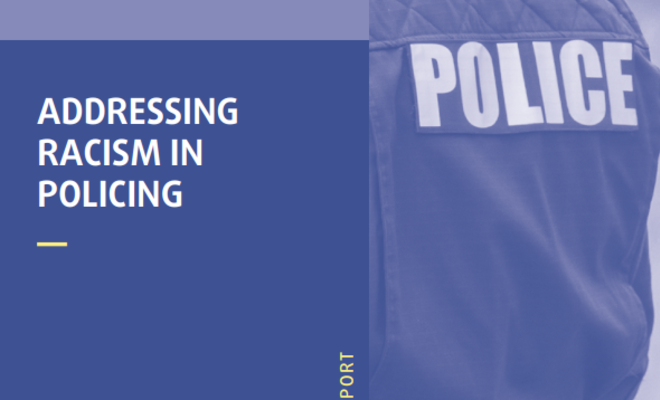Addressing Racism in Policing

Racist comments, more frequent stops and even violence - this is how people of different ethnic backgrounds experience policing in Europe. Yet, the lack of national data makes it difficult to fully assess the magnitude of the problem and design effective responses, finds the first ever EU-wide report on racism in policing from the EU Agency for Fundamental Rights. The Agency calls on EU countries to systematically collect data on police misconduct, make reporting safer and recording of police incidents effective, and increase diversity in police forces.
“Incidents of ethnic profiling and excessive use of force are expressions of racism in policing that EU countries need to address,” says FRA Director Sirpa Rautio. A vital component of policing is to protect all communities. But racist practices erode people’s trust and risk fuelling exclusion in our societies. We call on EU countries and police authorities to take urgent action to stamp out racism in policing.”
Racism in policing has far-reaching effects, fuelling social exclusion and harming trust in police forces.
FRA’s first EU-wide report on racism in policing highlights the deeper, structural issues that need to be uprooted from policing practices across the EU.
The study supports EU countries in tackling racism in policing. It identifies gaps in their regulatory frameworks and proposes concrete steps for action:
- Enforce and apply national legislation – all EU countries should strengthen the prohibition of racial and ethnic discrimination and racism in national laws.
- Collect data on police misconduct – most EU countries do not collect official data on racist incidents involving the police or they do not record them properly. Systematic collection of reliable and comparable data, disaggregated by gender and by incident type, would help countries measure and address the issue. EU countries should also regularly publish data on racist incidents by police officers.
- Ensure oversight and protect whistleblowers – almost all EU countries have police oversight bodies, but many are not independent and lack the powers to impose penalties. Whistleblowers fear retaliation, as they find it difficult to report incidents securely and confidentially. EU countries should enable whistleblowers to report misconduct by police forces and provide effective protection against retaliation. They should also ensure independent oversight.
- Provide training and increase diversity – ensuring a more diverse police force that represents society is crucial for effective and trustful policing. In most countries, there is no data on ethnic diversity within police forces. This makes it impossible to track the career development of police officers with ethnic backgrounds, and the impact this may have on policing practices. EU countries should focus on increasing diversity in police forces and keep track of their efforts. They should also provide more guidance to police officers to prevent racism in policing.
Background for this study:
- The EU anti-racism action plan (2020-2025) invited FRA to continue collecting data on police attitudes towards minorities.
- FRA’s previous report on police stops highlights that the police most often stop young men, ethnic minorities, Muslims or people who do not identify as heterosexual.
- FRA’s 2023 report ‘Being Black in the EU’ shows that 58% of respondents of African descent who were stopped by the police recently perceived their last stop as racially motivated. Such experiences significantly lower people’s trust in the police.
- To support police officers in treating people equally, FRA published a guide on how to prevent unlawful ethnic profiling and a manual for police trainers.
The report for Croatia was conducted by the Centre for Peace Studies. It is available here.
Centre for Peace Studies is part of the multidisciplinary research network FRANET of the EU Agency for Fundamental Rights together with organisations BaBe - Be Active. Be Emancipated. and Human Rights House Zagreb since 2014.



